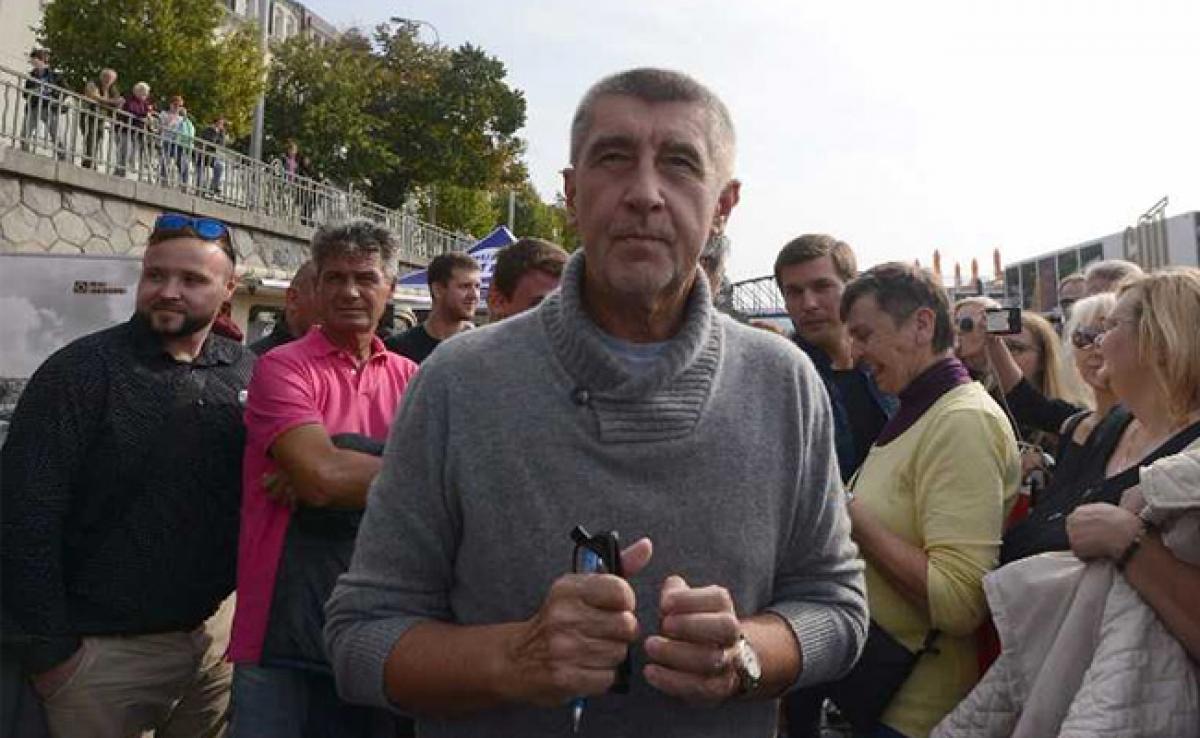Live
- Over 7,600 Syrians return from Turkiye in five days after Assad's downfall: minister
- Delhi BJP leaders stay overnight in 1,194 slum clusters
- Keerthy Suresh and Anthony Thattil Tie the Knot in a Christian Ceremony
- AAP, BJP making false promises to slum dwellers for votes: Delhi Congress
- 'Vere Level Office' Review: A Refreshing Take on Corporate Life with Humor and Heart
- Libya's oil company declares force majeure at key refinery following clashes
- Illegal Rohingyas: BJP seeks Assembly session to implement NRC in Delhi
- Philippines orders full evacuation amid possible volcanic re-eruption
- Government Prioritizes Welfare of the Poor, says Dola Sri Bala Veeranjaneyaswamy
- Two Russian oil tankers with 29 on board damaged due to bad weather
Just In

A billionaire populist dubbed the \"Czech Trump\" looked poised to win the country\'s two-day general election which starts Friday, as polls suggest anti-EU parties could make gains that analysts warn could plunge the country into chaos.
A billionaire populist dubbed the "Czech Trump" looked poised to win the country's two-day general election which starts Friday, as polls suggest anti-EU parties could make gains that analysts warn could plunge the country into chaos.
ANO (Yes) movement chief Andrej Babis drove home his anti-euro, anti-migrant and anti-corruption ticket in a final debate with Social Democrat rival Lubomir Zaoralek as campaigning wound down late Thursday.
Despite being indicted for fraud, Babis has captured around 25-30 percent voter support in recent polls.
This puts ANO miles ahead of its current coalition partner the left wing Social Democrats, who scored just 12.5 percent in a recent Median agency poll.
Far-right and far-left anti-EU parties are also expected to make strong gains, with polls suggesting a fragmented parliament with up to eight parties and few obvious coalition allies.
"We need the maximum of votes, we need the people to vote, to realise that this is crucial for the fate of our country," Babis told AFP on Thursday.
While Babis has vowed to steer clear of the eurozone and echoes other eastern EU leaders who accuse Brussels of attempting to limit national sovereignty by imposing rules like migrant quotas, he favours a united Europe and balks at talk of a "Czexit".
"We don't want (EU migrant) quotas, we don't want migrants here, we want to stop migration and finally want to have a prime minister who will tell Mrs Merkel and Mr Macron that the solution lies outside Europe," Babis said in the TV debate.
"We are standing against the traditional parties and we would like to get the chance to show them that the government can be managed in a different way than what our citizens are used to," he said earlier on Thursday.
The 63-year-old Slovak-born chemicals, food and media tycoon appeared certain to win despite a host of scandals including an indictment over alleged EU subsidy fraud, and suspicions he was a Communist police agent in former Czechoslovakia.
Narrow victory?
"I expect the election to end up with a rather difficult post-vote situation, maybe even chaos, because Andrej Babis's results won't be as glamorous as expected," independent analyst Jiri Pehe told AFP.
"The recent scandals have had an impact on him after all," he said, adding that he "can see signs of great instability."
A narrow victory will force Babis to negotiate with several parties, Pehe added, and some will "refuse" him for prime minister due to his scandals.
Foreign Minister Lubomir Zaoralek, the Social Democrats leader, has downplayed his party's poor showing in the polls, telling AFP on Thursday that he was still hopeful to "form the government."
The Median poll showed the Communists could win 10.5 percent, ahead of two anti-system parties -- the far-right Freedom and Free Democracy of Tokyo-born entrepreneur Tomio Okamura with 9.5 percent and the anti-establishment Pirates party with 8.5 percent.
The Civic Democrats and the small centrist Christian Democrats, the third party in the current coalition, would also surpass the five-percent threshold for entering parliament.
Polling stations in the EU member of 10.6 million people will open at 1200 GMT on Friday and close at 2000 GMT.
On Saturday, voting into the 200-member lower house begins at 0600 GMT and ends at 1200 GMT, with no exit polls scheduled and results expected in the evening.

© 2024 Hyderabad Media House Limited/The Hans India. All rights reserved. Powered by hocalwire.com







